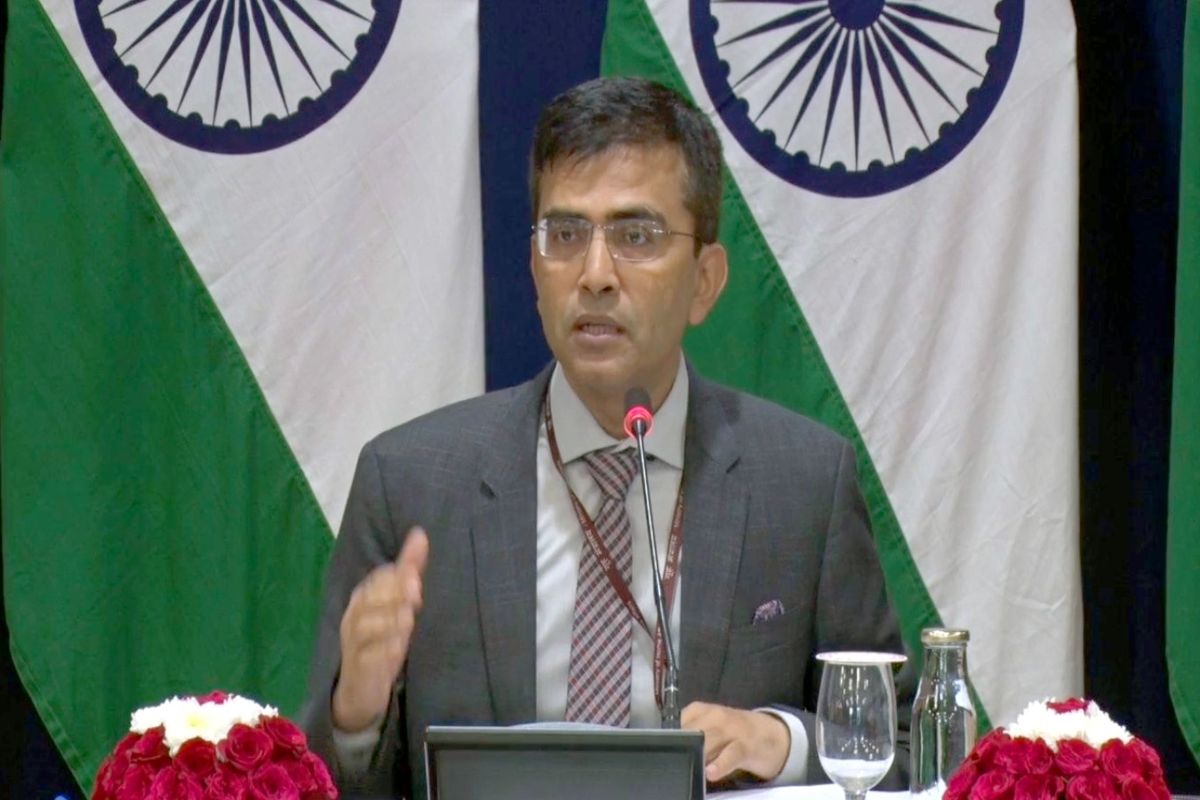India on Thursday reiterated its position on Kashmir saying that there is no role for any third party in the issue and reprimanded Pakistan for attempting to internationalise the issue.
The assertion came as US President Donald Trump, at the World Economic Forum in Davos on Tuesday, once again reiterated his offer to “help” on the Kashmir issue, saying the US was “watching and closely following” the developments in the Valley.
Advertisement
Trump made the statement ahead of talks with “a very good friend” PM Imran Khan on the sidelines of the annual WEF in Switzerland.
Addressing the media with Khan by his side, Trump said,”We are talking about Kashmir and in relation to what is going on with Pakistan and India and if we can help — we certainly will be helping. We’ve been following that and watching it very very closely.”
Khan too said that Kashmir is “a big issue”, while adding, “And, of course, we always hope that the US will play its part in resolving it because no other country can.”
Speaking on Trump’s repeated mediation offer, Ministry of External Affairs spokesperson Raveesh Kumar said: “Our position on the Kashmir issue and third party mediation has been very clear and consistent. Let me reiterate that there is no role for any third party in this matter.”
But the MEA spokesperson put the onus on Pakistan to create a conducive environment to hold talks on bilateral issues between the two countries.
“If there are any bilateral issues between India and Pakistan, that needs to be discussed. It should be done between the two countries under provisions of Shimla Agreement and Lahore Declaration. But onus is on Pakistan to create such conducive conditions – free from terror, hostility and violence,” he said.
Earlier too, on many occasions Trump had offered to mediate in the Kashmir issue.
Tensions between India and Pakistan spiked after New Delhi abrogated provisions of Article 370 of the Constitution to withdraw Jammu and Kashmir’s special status and bifurcated the state into two Union Territories on August 5, 2019.
India has categorically told the international community that the scrapping of Article 370 to revoke the special status of Jammu and Kashmir was an internal matter and also advised Pakistan to accept the reality.
Further, India slammed Pakistan Prime Minister Imran Khan for attempting to internationalise the Kashmir issue yet again and termed him “desperate” while adding that the “global community now understands the country’s double standards”.
Speaking to an English news channel, Khan at Davos had called for global intervention to prevent a showdown between “two nuclear-armed countries”.
Khan claimed India has been taken over by “extremist ideology” that could “potentially spill over into armed conflict between the two nuclear rivals”.
He then urged US President Donald Trump and the United Nations to intervene in the matter immediately. He had also demanded the positioning of a UN Military Observer Group along the line of control between the two countries.
Reacting to the same, Raveesh Kumar said that there was “nothing new” in what Imran Khan had said at the World Economic Forum meet in Davos, Switzerland.
“His remarks suggest that he is desperate and rapidly losing hope. While they pretend to be victims of terrorism on the one hand, they foster extremists who spread terrorism in India and other countries on the other,” he said.
Kumar further said that Pakistan’s attempt to create an “alarmist situation” in Kashmir has failed.
The MEA spokesperson further maintained that the WEF was not an appropriate platform to discuss such issues.
Earlier in the day, Deputy Permanent Representative of India to UN, Nagaraj Naidu had slammed Pakistan for “spewing venom and false narratives” of monumental proportions in the United Nations, saying it “takes to hate speech like a fish takes to water”.
“Just like a fish takes to water, one delegation has again taken to hate speech. Every time this delegation speaks, it spews venom and false narratives of monumental proportions,” Naidu said at the 74th session of the United Nations General Assembly.











